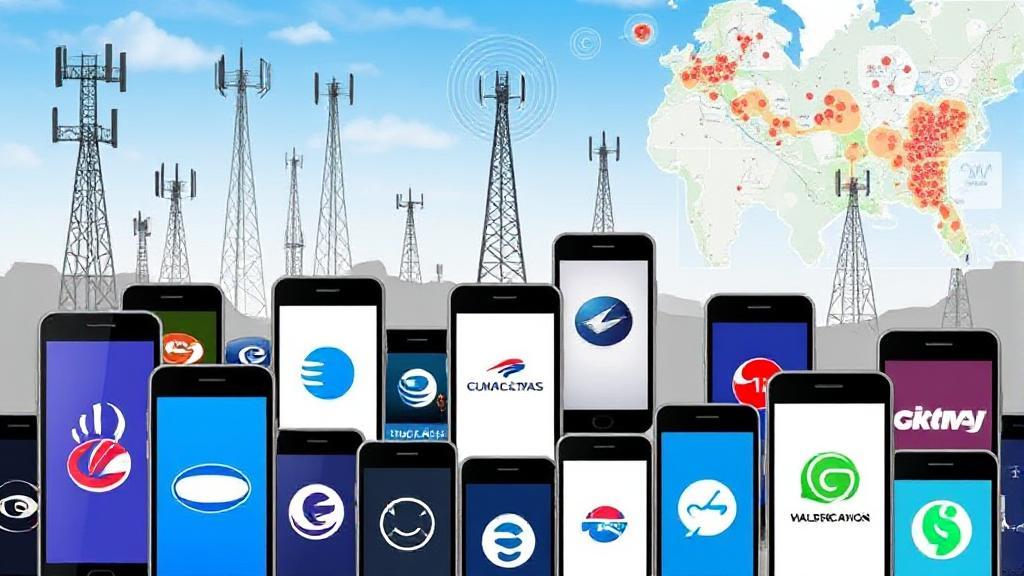Coverage and Network Quality
Coverage is arguably the most critical factor when choosing a cell phone carrier. A carrier's coverage map will show you the areas where they provide service. It's important to ensure reliable coverage in your home, workplace, and other frequently visited locations.
- Check carrier coverage maps on websites like OpenSignal or RootMetrics
- Ask friends and colleagues about their experiences
- Consider indoor coverage at home and work
- Research rural coverage if you frequently travel
Different carriers prioritize different aspects of network performance:
| Aspect | Why It Matters |
|---|---|
| Speed | Streaming quality and download times |
| Latency | Gaming and video call performance |
| Congestion | Peak hour reliability |
| 5G availability | Future-proofing your service |
Cost and Plan Features
Monthly Plans
Compare carriers' offerings while considering:
- Data allowances
- Unlimited vs. tiered plans
- Family plan options
- International calling/texting
- Mobile hotspot inclusion
Pro tip: Don't just look at advertised prices - factor in taxes, fees, and additional charges that can significantly impact your monthly bill.
Hidden Costs
Be aware of potential additional expenses:
- Activation fees
- Device upgrade fees
- Early termination fees
- International roaming charges
Customer Service
Quality customer support can be crucial when issues arise. Consider the following:
- Support Channels: Does the carrier offer multiple support channels such as phone, chat, and in-store assistance?
- Response Time: How quickly does the carrier respond to customer inquiries and resolve issues?
- Average hold times
- Store locations for in-person assistance
Reading customer reviews on platforms like Trustpilot or Consumer Affairs can provide insights into a carrier's customer service quality.
Device Selection and Compatibility
BYOD (Bring Your Own Device)
- Check device compatibility
- Understand unlocking policies
- Verify 5G support if desired
New Device Programs
- Payment plans
- Trade-in values
- Upgrade eligibility
- Insurance options
Additional Features
Many carriers offer extra perks that might influence your decision:
- International Roaming: Look for carriers that offer affordable roaming plans if you travel internationally
- Streaming Services: Some carriers bundle services like Netflix or Disney+
- Hotspot Data: Plans may include mobile hotspot capabilities
- Cloud storage
- Mobile security features
- Rewards programs
- Wi-Fi hotspot access
MVNOs vs. Major Carriers
Consider whether a Mobile Virtual Network Operator (MVNO) might better suit your needs:
Advantages
- Lower costs
- No contracts
- Specialized plans
Disadvantages
- Lower network priority
- Fewer perks
- Limited device selection
Before making your final decision, take advantage of:
- Free trial periods
- Money-back guarantees
- Temporary test lines
- Port-in promotions
Remember that the "best" carrier varies by individual circumstances. What works perfectly for someone else might not be ideal for you. Regularly review your plan to ensure it continues to offer the best value as your needs change.
